79 F. high in the Twin Cities Wednesday.
77 F. average high on September 3.
78 F. high on September 3, 2013.
.13" rain fell at MSP International Airport yesterday.
September 3 in Minnesota Weather History. Source: MPX National Weather Service:
1992: Early morning storms resulted in 3/4 to 1 3/4 inch hail in Hennepin, Dakota, Rice and Goodhue Counties.
1941: A late batch of tornadoes hit Minneapolis, New Brighton, and White Bear Lake, killing six people.
1925: The third consecutive day of 95 degrees or above in the Minneapolis area.
Atmospheric Ballet
"Every action of our lives touches on some chord that will vibrate in eternity" wrote Sean O'Casey.
The
weather keeps vibrating and morphing across the planet; a perpetual
dance of moisture, wind & heat. The world out my window appears
flat, but scientists insist the Earth is, in fact, spherical.
Differential heating warms the equator, a glancing blow of sunlight over
northern latitudes brewing up chilly airmasses that flow south,
spinning up stormy gyres: spiral galaxies of moisture that we try to
track and predict days in advance.
The humbling truth: weather may
appear similar - but it's never identical. No two weather maps are ever
alike. "Paul, can't you just see what's in Montana today and move it
over Minnesota tomorrow?" Insert face-palm here. Short answer. No.
Dew points surge into the 70s today; a spike of heat & humidity
capable of more T-storms. A few may turn severe north and east of the
Twin Cities Friday will feel like fall but temperatures mellow into the 70s
for a beautiful weekend.
The sun's slipping lower in the southern
sky; longer nights sparking an early chill over Canada. Time to dig a
sweatshirt out of cold storage. The atmosphere is shifting gears.
Dramatic Photos of California's History Drought.
The Atlantic
has some amazing and sobering before and after photos that instantly
capture the gravity of the current drought impacting much of the west;
here's an excerpt: "
According to the U.S. Drought Monitor, 82
percent of the state of California currently falls in the "Extreme
Drought" category. The years-long dry spell has tapped groundwater
reserves and left reservoirs at record lows. Shasta Lake and Lake
Oroville are both down to 30% of full capacity, exposing steep
shorelines that were formerly under hundreds of feet of water. Marinas
are crowding into ever-smaller coves as the water recedes, and ramps and
roads no longer reach the shoreline. Getty Images photographer Justin
Sullivan traveled to a number of these reservoirs last month and
captured dramatic images, evidence of the severity of the water crisis
in California.."
Scientists: The American Southwest Faces a "Megadrought".
Is California, Nevada and Arizona facing an extended period of drought,
something not seen in the last few hundred years? The idea may not be
as far-fetched as it sounds. Here's the introduction to a story at
Modern Farmer: "
A
new study published as a joint effort by scientists at Cornell
University, the University of Arizona, and the U.S. Geological Survey
finds that the chances of the Southwest facing a “megadrought” are much
higher than previously suspected. According to the new study,
“the chances of the southwestern United States experiencing a
decade-long drought is at least 50 percent, and the chances of a
‘megadrought’ – one that lasts up to 35 years – ranges from 20 to 50
percent over the next century.” Not so crazy, according to Richard
Seager, a climate scientist at Columbia University who has helped pen many studies
of historical megadroughts: “By some measures the west has been in
drought since 1998 so we might be approaching a megadrought
classification!” he says..."
The New Science of Big Hurricanes.
Martha's Vineyard Magazine
has an interesting article about the genesis of hurricanes and other
tropical systems that impact the East Coast; here's an excerpt: "...
A hurricane travels like a rotating cork in a turbulent stream,” says
Kerry Emanuel when trying to explain why any particular hurricane might
veer north toward New England rather than hitting a more familiar
target in, say, Florida. A professor of atmospheric science at M.I.T. in
Cambridge, Emanuel is a leader in the effort to model how hurricanes
might change in number and strength over time, based on records from the
past and how the climate may be evolving now. “A hurricane is simply
moving with the large-scale air-flow in which it’s embedded. When you’re
in the tropics, the trade winds are relatively steady; they’re blowing
out of the east, and hurricanes almost always move toward the west...”
Photo credit above: "
Church’s Market Corner in Oak Bluffs (now the site of Our Market) as Hurricane Carol nears its height on August 31, 1954."
Hitachi Developing Reactor That Burns Nuclear Waste.
Will technology save us from ourselves, or at least our excesses? The
jury is still out, but it's (carbon-free) innovations like this that
might help. Here's a clip from
Gizmag: "
The
problem with nuclear waste is that it needs to be stored for many
thousands of years before it’s safe, which is a tricky commitment for
even the most stable civilization. To make this situation a bit more
manageable, Hitachi, in partnership with MIT, the University of
Michigan, and the University of California, Berkeley, is working on new
reactor designs that use transuranic nuclear waste for fuel; leaving
behind only short-lived radioactive elements..."
Chernobyl Disaster Leaves Radioactive Wild Boars Roaming Germany.
To paraphrase George Carlin, "don't sweat the thunderstorms." I'm
feeling better about our high humidity levels. Here's an excerpt from
NBC News: "
Nearly
three decades after the Chernobyl nuclear disaster, wild boars
containing high levels of radiation have been found roaming the German
countryside some 700 miles away. The explosion at the Ukrainian plant in
1986 spread a radioactive cloud over Europe. One in three boars tested
in Germany’s eastern state of Saxony still exceed legal radioactive
limits, officials say. "You should not expect that wild boars in the
southern Vogtland region are now glowing in the dark, but regulations in
Germany and the European Union are very strict," local environment
ministry spokesman Frank Meyer told NBC News..."
What The Celebrity News "Fappening" Really Tells Us About Today's Tech Giants.
Let me state this again: if the product or service is "free" YOU are
the product. Assume nothing in the cloud is safe or private and you'll
never be disappointed.
Vanity Fair outlines the risks; here's an excerpt: "...
Nothing,
but nothing, that is stored on the cloud can be considered “safe” from
hacking. Not your credit card information. Not your banking credentials.
Not a law firm’s merger and acquisitions plans. Not a defense
contractor’s design schematics for fighter jets. Not chemical formulas
for drugs in development. Not source code for the world’s mightiest
companies. And definitely not naked pictures, no matter who you are..."
Is Modern Life Making Us Dumber?
I don't know - let me consult my smart phone for the correct answer. I
asked Siri and she just laughed at me. Not good. Barry Ritholz makes a
compelling case at
The Big Picture; here's a snippet: "
Scientists say that we have much smaller brains than our ancestors had 20,000 years ago … and we might have gotten stupider since agriculture became widespread. Huffington Post reports that we’ve probably gotten dumber than even our Victorian ancestors: A provocative new study suggests human intelligence is on the decline. In fact, it indicates that Westerners have lost 14 I.Q. points on average since the Victorian Era..."
Weather From. Who needs meteorologists, local news or national weather channels, apps and Doppler when you can have
this? I suspect this is where everything is headed. One woman with a teapot, an attitude, and your forecast. Take it or leave it.
TODAY: Sticky; strong/severe storms possible. Dew point: 73. High: 88
THURSDAY NIGHT: Evening thunder, then breezy and cooler. Low: 58
FRIDAY: Touch of fall. Much cooler. Dew point: 47. High: 67
SATURDAY: Spectacularly sunny. Dew point: 46. Wake-up: 52. High: 73
SUNDAY: Just about perfect. Bright sun - low humidity. Wake-up: 54. High: 75
MONDAY: Showers, possible T-storms. Wake-up: 57. High: 73
TUESDAY: Partly sunny, turning warmer. Wake-up: 60. High: 77
WEDNESDAY: Few showers, cooler wind kicks in. Wake-up: 55. High: 65
Climate Stories...
The 33 Things To Do Before Climate Change Ruins Everything.
Alarmist hype? I sure hope so. But just in case the vast majority of
climate scientists turn out to be correct here's an excerpt of a story
at
Medium: "
You're
the kind of person who likes his boardwalks above water. You don’t have
allergies. You like winter. You want your champagne to come from the
Champagne region of France—not some unromantic corner of England
hundreds of miles to the north. You like cherry pie. You like oysters.
You eat fish. You don’t eat jellyfish. You’re the kind of person, then,
who needs the Matter handbook to a burning planet, a compendium of real
scientific findings that look at how the globe may change over the next
fifty years and beyond. Think of it as your guide to the good life
before climate change melts it away..."
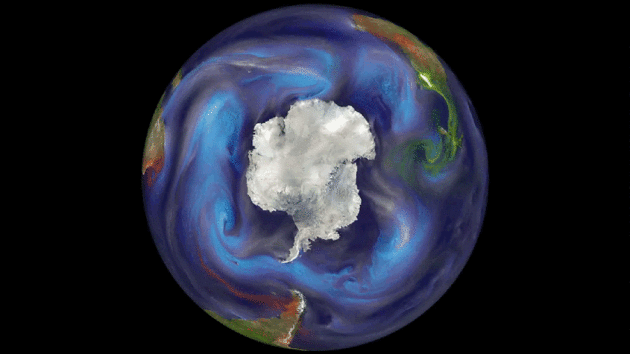
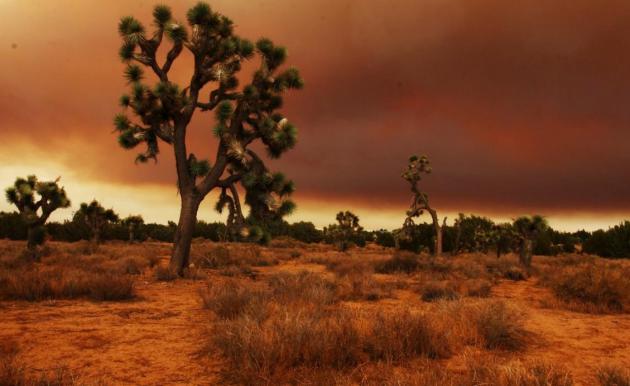
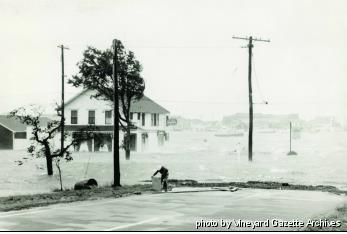
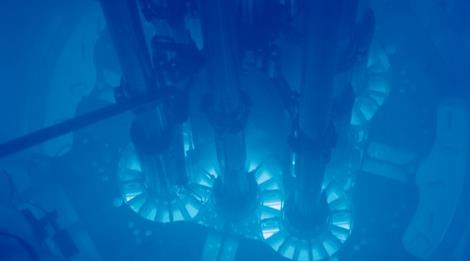



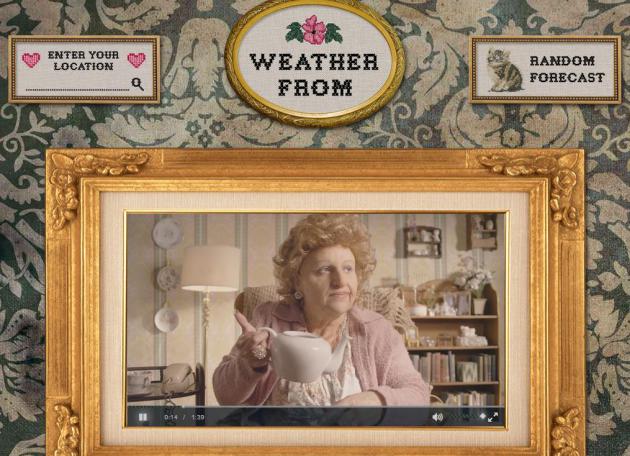
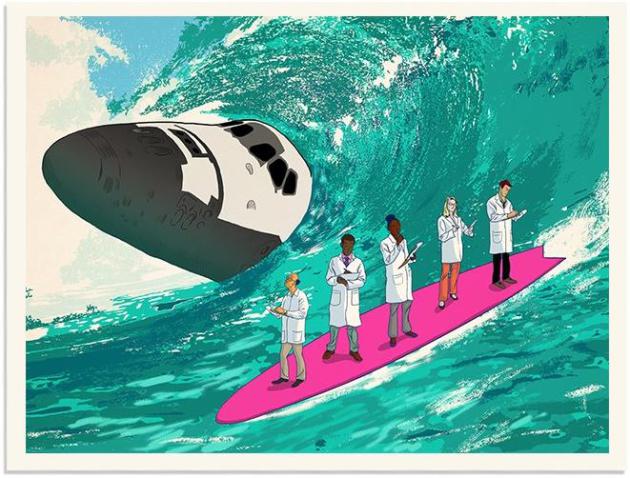
No comments:
Post a Comment